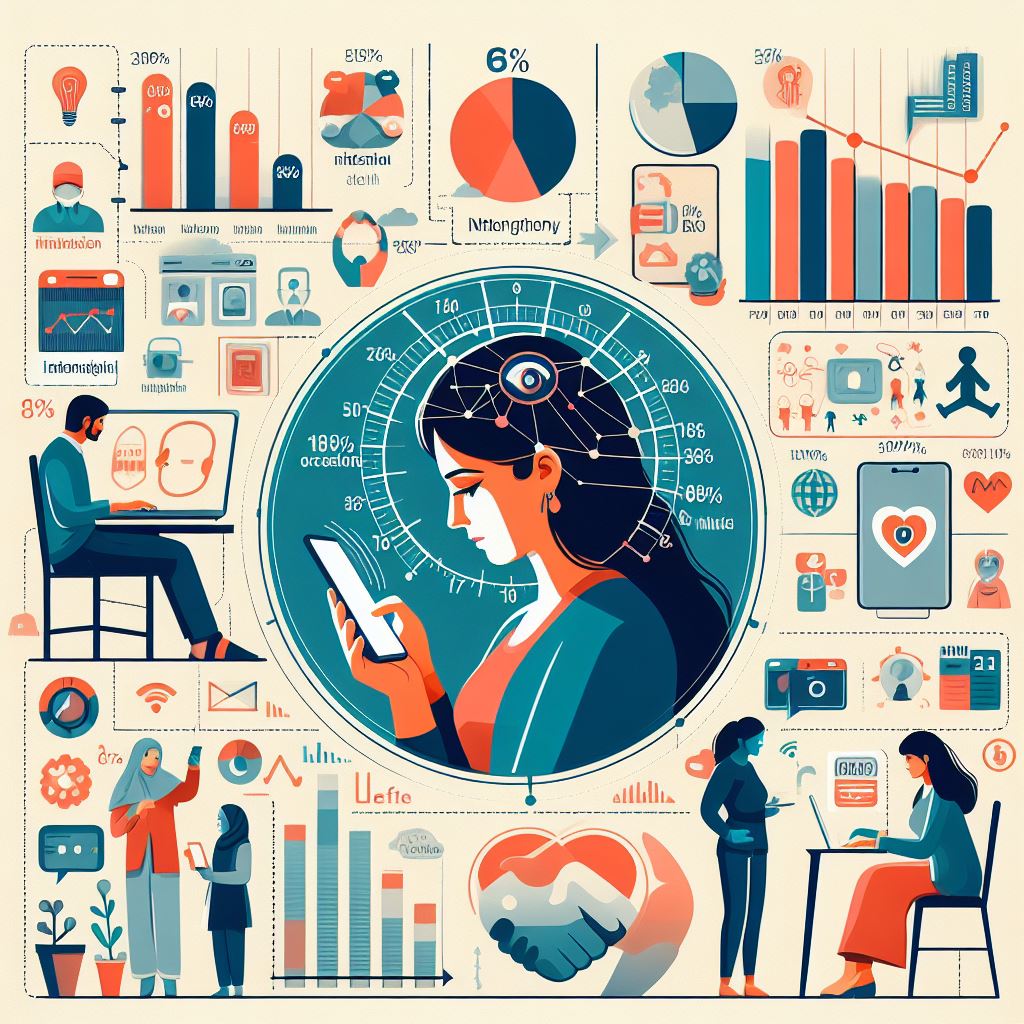Introduction
Pakistan faces a significant challenge with drug addiction, with estimates suggesting millions struggling with substance abuse. While traditional factors like poverty and social stigma play a role, the rise of digital access presents a complex new dimension to the issue. This essay explores the multifaceted relationship between digital access and drug addiction in Pakistan. It examines how digital platforms can be both a risk factor and a potential tool for prevention and recovery.

Digital Access and Risk Factors
Increased digital access in Pakistan, primarily through mobile phones, has introduced several potential risk factors for drug addiction:
- Exposure to Pro-Drug Content: The internet can be a breeding ground for content glorifying drug use. Social media platforms, messaging apps, and even some websites can expose vulnerable individuals to graphic depictions of drug use, positive portrayals of drug culture, and even instructions on obtaining drugs.
- Online Drug Dealing: Digital platforms have facilitated the creation of online marketplaces for drugs. Dark web forums and encrypted messaging apps can connect users with dealers, making it easier and more discreet to obtain substances.
- Social Media and Mental Health: Social media use can exacerbate mental health issues, which are a known risk factor for addiction. Cyberbullying, social isolation, and unrealistic portrayals of life on social media can contribute to depression, anxiety, and feelings of inadequacy, all of which can make someone more susceptible to drug use as a coping mechanism.
Case Study: Social Media and Prescription Drugs
A growing concern in Pakistan is the non-medical use of prescription drugs, particularly opioids and sedatives. Social media groups have been identified where users discuss obtaining and using these medications recreationally. These online communities can normalize such behavior and even provide tips on how to misuse prescriptions.
Digital Access for Prevention and Recovery
Despite the risks, digital access also presents opportunities for tackling drug addiction in Pakistan:
- Awareness Campaigns: Social media platforms and mobile apps can be used to disseminate information about the dangers of drug use. Public health campaigns can target specific demographics and utilize engaging formats like videos and infographics to raise awareness.
- Telehealth Services: Digital platforms can facilitate access to mental health services in remote areas. Teletherapy sessions with qualified professionals can provide support and counseling to individuals struggling with addiction or at risk of developing it.
- Support Groups: Online support groups for recovering addicts can offer a sense of community and belonging. These groups can provide a safe space for sharing experiences, offering encouragement, and promoting relapse prevention strategies.
Case Study: Recovery Apps
Several mobile applications have been developed to support addiction recovery. These apps can offer features like daily trackers, motivational messages, relapse prevention tips, and even connections to support groups. While not a replacement for professional treatment, such apps can be a valuable tool for individuals on their recovery journey.
Challenges and Considerations
While the potential benefits of digital tools are undeniable, there are challenges to consider:
- Digital Literacy: A significant portion of the Pakistani population lacks basic digital literacy skills. This can hinder their ability to access and effectively utilize online resources for prevention or recovery.
- Privacy Concerns: Individuals struggling with addiction may be hesitant to use online resources due to privacy concerns. Robust data protection measures and clear communication about data usage are crucial to building trust.
- Infrastructure and Accessibility: Unequal access to reliable internet and digital devices can exacerbate existing disparities. Efforts to promote digital inclusion are essential to ensure everyone can benefit from these tools.

Recommendations
To maximize the positive impact of digital access on drug addiction in Pakistan, a multi-pronged approach is recommended:
- Develop digital literacy programs: Equipping the population with basic digital skills will empower them to navigate online resources effectively.
- Partner with tech companies: Collaboration between government agencies, public health experts, and technology companies can lead to the development of culturally appropriate and evidence-based digital interventions.
- Invest in digital infrastructure: Expanding internet access and ensuring affordability of devices will bridge the digital divide and allow for wider adoption of these tools.
- Promote responsible online content: Collaborate with social media platforms to develop guidelines for content moderation and encourage responsible advertising practices.
- Support online support groups: Provide resources and training to online support groups to ensure they operate effectively and provide genuine support to recovering addicts.

Conclusion
The rise of digital access presents a complex challenge for tackling drug addiction in Pakistan. While digital platforms can be a risk factor, they also hold immense potential for prevention, recovery, and support. By acknowledging the challenges, investing in responsible digital solutions, and promoting digital literacy, Pakistan can harness the power of technology to make a positive impact on this critical public health issue.



